BACK in 1981 the BBC flagship pop music TV show Top of The Pops, was watched by a family audience that often approached a staggering 19 million viewers.
Families all over the land would gather to tune in each week and invariably an argument would take place between the teenagers and parents about the merits of the music or the dress style of the bands prancing on a rostrum above a herded studio teen audience.
Thursday, October 29 was a particularly special day for the Irish in 1981, as on that day on the show most of the audience were astonished to see on a line-up that included songs from Altered Images, Haircut 100, Squeeze, Olivia Newton John, Orchestral Music In The Dark and Rod Stewart, as well as a romantic ballad written in 1898 performed by an Irish folk group with Ballyfermot Traveller roots.
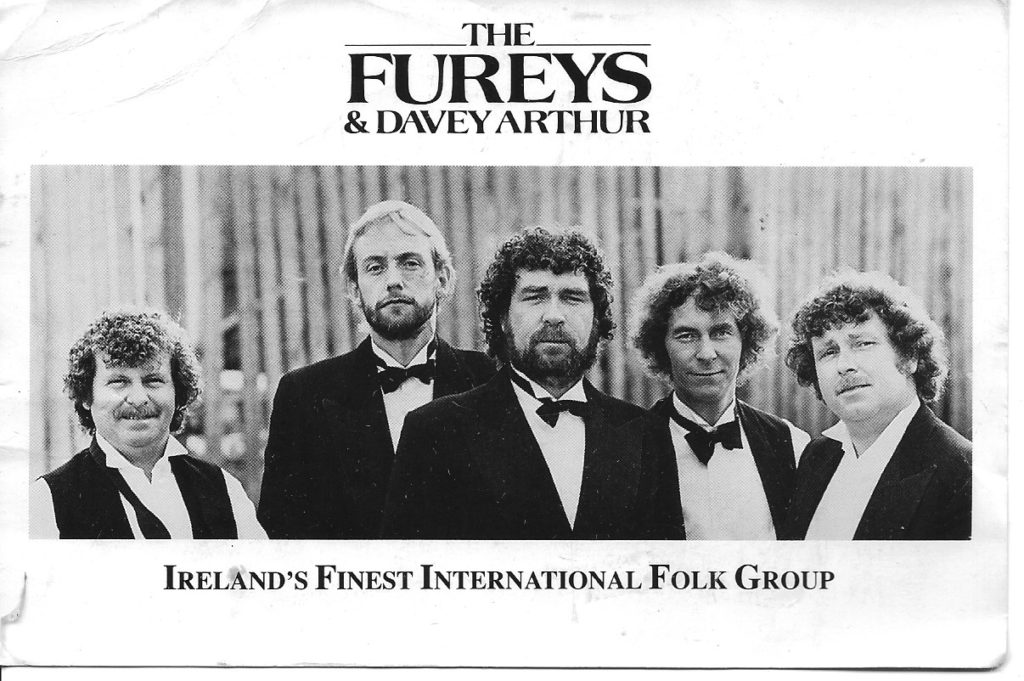 The Fureys and Davey Arthur were the first band signed by Ritz Records
The Fureys and Davey Arthur were the first band signed by Ritz RecordsAmongst the brash pop of the show this appearance by the The Fureys & Davey Arthur, sitting on stools and singing after a lengthy banjo introduction, was like nothing else, but they had every right to be there.
According to the strict format rules by which the show had run successfully since 1964, any record rising up the top 30 of the official chart was entitled to be considered for the programme.
The Fureys’ single had gone up from no 26 to number 22 so they had been flown in for the prestigious slot and, thanks to airplay on The Terry Wogan show on BBC Radio 2, their first record released in the UK was a hit.
It was a significant moment for many reasons for both the Irish and Irish music, as not only had it been the first rare appearance by an Irish Folk group on the show for 14 years - since the Dubliners had been on - but perhaps more importantly it was the first hit for the newly formed Ritz Records, the UK-based Irish label owned by Mick Clerkin.
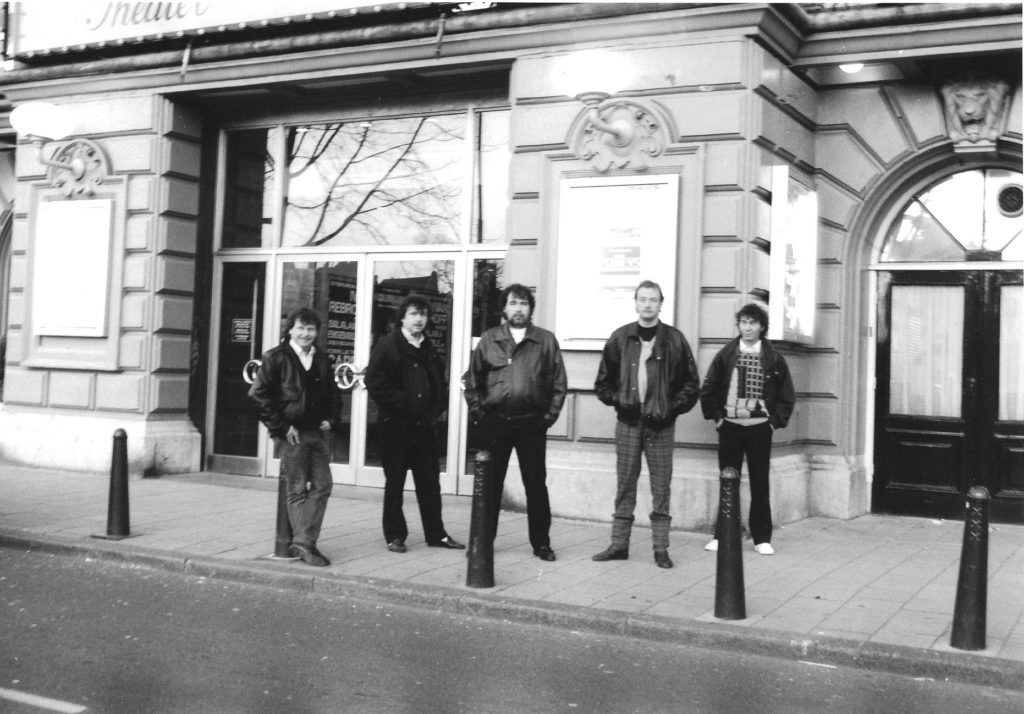 The Fureys went on to have a hugely successful career
The Fureys went on to have a hugely successful careerThis was the start of a most remarkable success story that opened the doors internationally for so many legendary Irish musicians to follow, from Foster and Allen to Daniel O’Donnell and many more, all going on to sell literally millions of records across the world from a new label based in London.
Cavan man Mick Clerkin had lived and worked in London from the 1950s and supplemented his income as a van driver by working the door at ballrooms like The Gresham on the Holloway Road.
As he loved Country music and dancing, he went on to become a roadie for Larry Cunningham, returning to Ireland to work with him as his manager in those heady show band days.
Mick and Larry did really well and ended up opening Westland Row, the first 24 track studio in Ireland.
Mick also went on to own his own record distribution company Release Records.
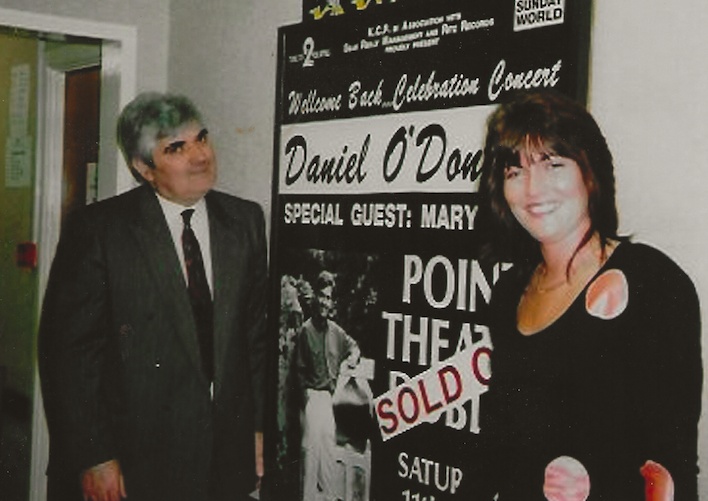 Ritz Records founder Mick Clerkin, a Cavan man who commuted between Dublin and London when the label first started
Ritz Records founder Mick Clerkin, a Cavan man who commuted between Dublin and London when the label first startedHe soon realised that Ireland was a very small market and that no Irish singer could really achieve international success without being signed to one of the UK-based major record companies, such as EMI, Decca or CBS, but the problem was that these companies focused on UK pop and were not really interested in music from Ireland.
They certainly saw no market for what some might call ‘middle of the road’ music, which appealed to an older demographic.
For the few years previously I had been working as Head of Promotion for Decca, and had experience of breaking left-field hit records using Radio 2, which was not considered cool and was largely ignored by the other major labels.
By 1981 I had set up a music management business on my own to work on independent productions from my office in London’s Regent Street – which is now the Apple building.
I was quite busy when, out of the blue, I was asked to meet Clerkin.
I knew who he was but yet to meet him.
When we did meet, he told me of his plans to start a label in the UK and asked me to get involved.
To test the water he had three potential singles they wanted to try in the UK market, one was by Sheeba, the other was by Joe Dolan and the third was by folk group the Furey Brothers.
I took the records home and listened to them to see if the singles had any potential in the very competitive British market.
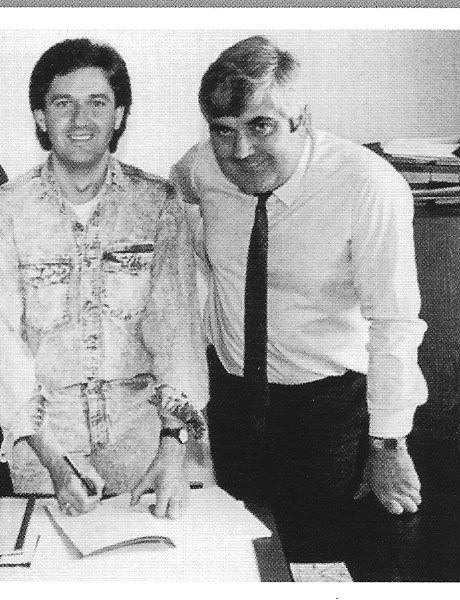 Daniel O'Donnell was also a new act signed by Mick Clerkin's Irish label
Daniel O'Donnell was also a new act signed by Mick Clerkin's Irish labelThe one that seemed most unusual was When You Were Sweet Sixteen, which was an old Edwardian ballad with a stark banjo introduction followed by a warm romantic vocal from Finbar Furey.
It was certainly very left-field and unlike nothing else in the charts but I knew of Finbar and Eddie Furey as they had been on Transatlantic, where I had first started and I had previously worked on another Folk-based recordStreets of London by Ralph McTell.
We managed to get that to No 2 in the charts in January 1975, so, although it would be a challenge, it was this Folk-based Furey record I prioritised.
The single was released in August and I took promo copies of it to BBC Radio 2 and got Terry Wogan to give it a few initial spins on his popular breakfast show.
At that stage Ritz Records consisted of just me and my PA in my small Regent Street office.
Clerkin was still living In Ireland but travelled to and from London for progress meetings.
Slowly throughout August Wogan continued to play the record and each time he did the BBC would get calls asking about it.
Slowly the daily sales figures managed to move up in a positive direction, until on October 10 the record went into the top 75 at 47.
Ritz had a hit with their first release.
On October 20, at 8.30am I got to the Top of The Pops office at the BBC TV Centre with all the other PR guys to hear the chart revealed.
I was delighted to discover the Fureys had now gone into the Top 30 chart at No 26.
It’s My Party by Dave Stewart and Barbara Gaskin, which my partner and I at the time had organised, was still No 1 and this gave me some credibility when I pointed out to the show’s producer Stan Appel that, according to Top of the Pops rules, the Fureys were now entitled to be considered for the show.
It seemed like a miracle when I persuaded them to include this odd record and we rushed to get the lads on a flight and a special backing track done for the show recording the next day.
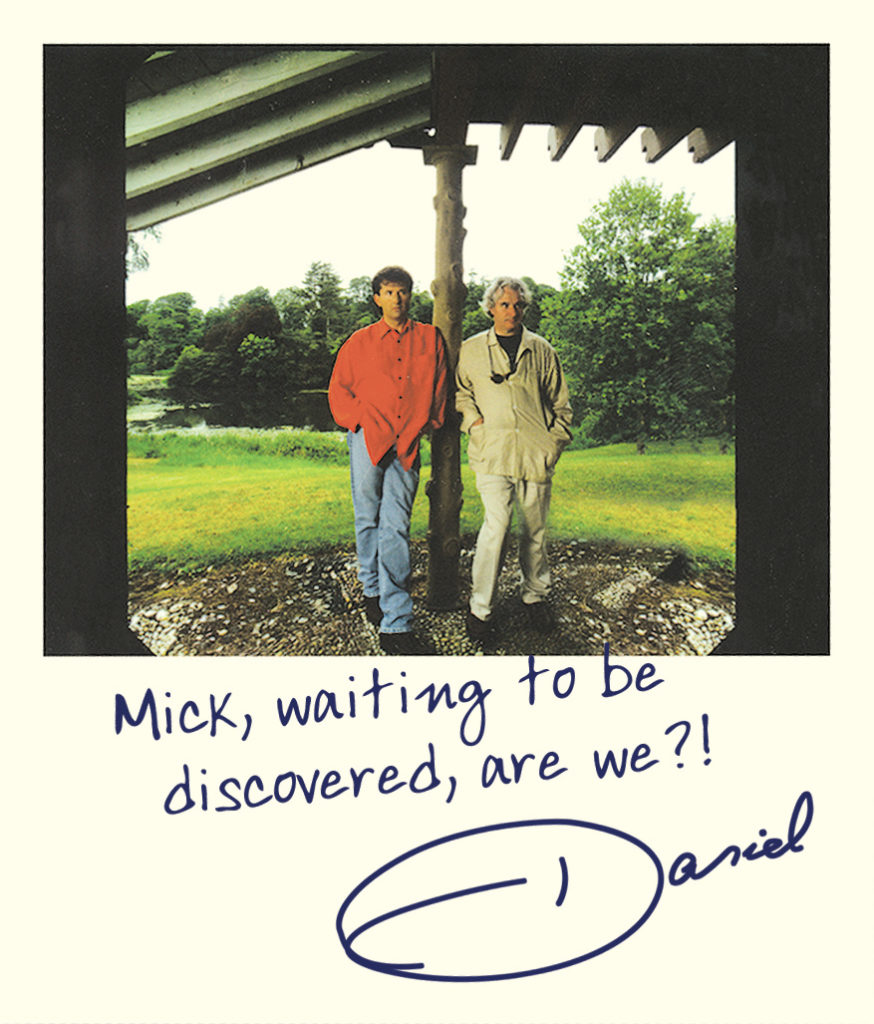 Daniel O'Donnell was another hit-maker for the label, going on to become a global music star
Daniel O'Donnell was another hit-maker for the label, going on to become a global music starThen disaster struck as whilst nervously rehearsing in the huge flash studio a carpenter unplugged a piece of equipment on one of the sets and the electricians walked out on strike causing the show to be summarily cancelled.
Utterly disappointed, the Fureys had to fly home but mercifully the next week on October 27 the record had gone up furter in the chart to reach No 22 - so we were back in business and the Fureys flew back and recorded the show on Wednesday, October 28 - which was broadest to the unsuspecting nation on October 29, 1981, an historic day.
For the Fureys and for Ritz Records to get a hit and the spot on the prestigious Top of the Pops with their first release was quite remarkable.
It was a seminal and unexpected moment.
From that day The Furey Brothers & Davey Arthur became what we described then as ‘Ireland’s Finest International Folk Group’.
I did a deal for them with CBS in Australia where the single went platinum and with their first album out in 1982 they toured in concert venues all over the world.
From a weekly spot at the Baggot Inn they were now selling out the Royal Albert Hall and concert venues in Sydney, New York and Toronto.
We rushed to Ireland to film a video and to package the album with the iconic sleeve and forty years on the brothers are still touring.
The significance of Ritz Records on The Furey’s career is not lost on the Furey’s of course.
“As a family folk group we had been singing since we were kids in folk clubs and bars but after Ritz took our Sweet 16 single and got Wogan to play it and then they got us on Top of the Pops everything changed for us,” George Furey states.
“We flew back from America to do Top of the Pops and that was like a dream and was mighty.
“The next thing we knew we were dressed in black coats or old style dinner suits and were packing out huge concert Halls all over England.”
He added: “Then they got us a platinum record In Australia, so we did huge tours there and we have been playing nothing but concerts ever since.
“All that was down to the two Micks and Ritz Records. I can’t believe it was 40 years ago.”
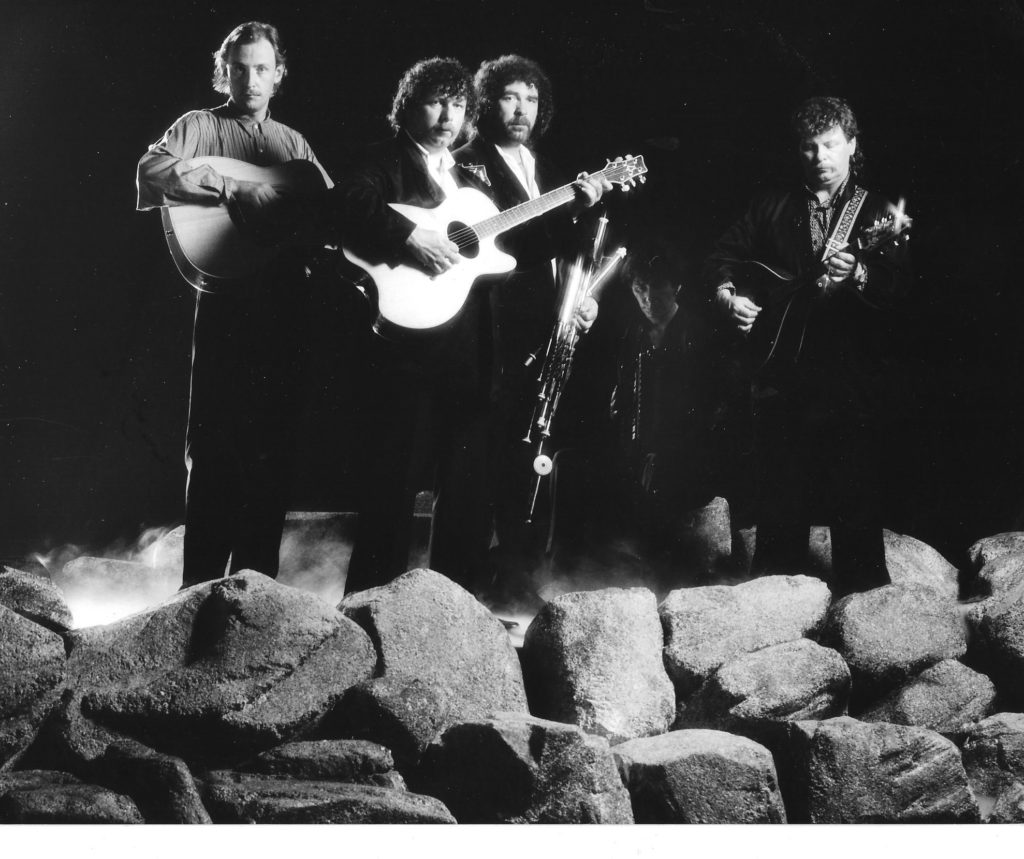 The Fureys still credit their break with Ritz Records for their success in the industry
The Fureys still credit their break with Ritz Records for their success in the industryBut that was just the start for Mick Clerkin’s Ritz label, which had proved what we knew - that there was a large audience out there for ‘middle of the road’ music that was being ignored by the major labels.
After their Fureys success Ritz acquired Foster & Allen in 1982, who we got on Top of The Pops with their ballad Bunch of Thyme.
This was followed by Maggie and the long hugely successful career of another Irish folk group was kick started.
Tony Allen of Foster & Allen recalls their early days with the record label.
“Mick Foster and I were amazed when we saw The Fureys on Top of the Pops and were delighted when Ritz then took our Bunch of Thyme single and released it in the UK.
“They got a hit with it and they got us on Top of the Pops amongst all the pop bands.”
He added: “We got slagged for the green leprechaun suits, which our manager Donnie Cassidy made us wear, but Ritz soon made us dump them and they then they made great classy videos for our next singles, like Maggie, which opened up other countries for us.
“It changed our lives completely and we became a concert attraction not a cabaret act and we have never looked back. So thanks Ritz for everything.”
With such a winning streak Ritz had expanded and moved after a couple of years to their own offices - with Mick Clerkin eventually moving over to live in both London and Dublin, and bringing in some of his family to increase the staff force.
By 1985 Mick Clerkin was looking for a new artiste that this time was not beholden to a manager in Dublin, and he found a young Country singer from Donegal.
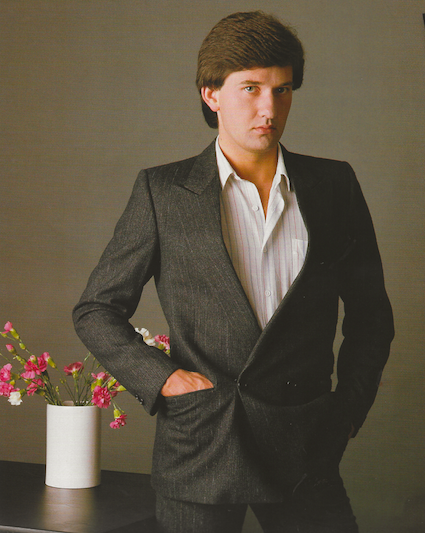 Daniel O'Donnell on his first photoshoot under Irish label Ritz Records
Daniel O'Donnell on his first photoshoot under Irish label Ritz RecordsAfter an appearance at Roundwood Park Daniel O’Donnell was signed to the label.
I had worked in the 70’s for Motown, who unlike other labels, controlled not just the records but also the touring and management of their artistes and Mick Clerkin followed this unusual model with Daniel to build his touring career.
In 1986 Mick introduced Daniel to Sean Reilly and appointed him as his personal manager, forming a close bond that endured for 30 years until Sean retired.
“On Friday, December 13th 1985, I remember stopping in Ballisodare, Co. Sligo, on the way to a venue and phoning Mick Clerkin, the boss of Ritz Records,” Daniel O’Donnel recalls.
“The thought had crossed my mind about giving it all up, because it just wasn’t working out.
“I was hoping to persuade Ritz to take over total control of my career.
“They had been getting a good reaction to the album, The Two Sides at that stage, but I wasn’t aware of it.
“Mick Clerkin said he felt it was worth persevering, that I should continue to give it a go.
“Mick CLerkin was the man I needed in my career at that point, I am forever grateful to Mick and everybody at Ritz“.
With Daniel we had album success before we got a hit single, but I finally got him on his first Top of The Pops on September 17, 1992.
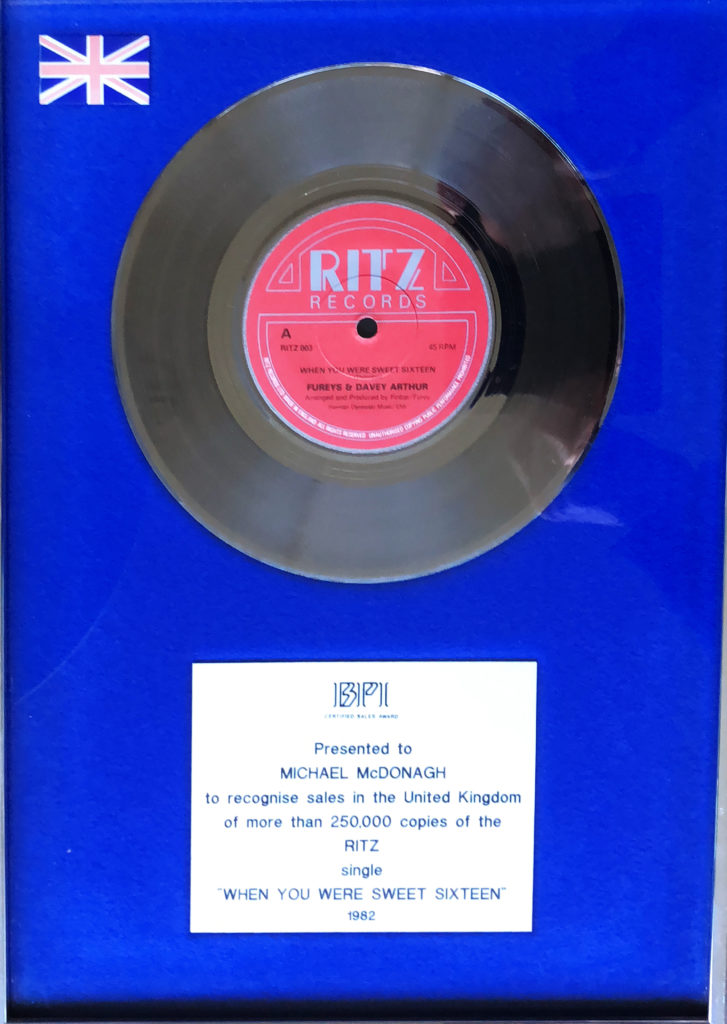 Ritz Records achieved many hits over the years
Ritz Records achieved many hits over the yearsHe flew back from a tour of Australia to do the show, performing I Just Want To Dance With You.
He did it again on August 5, 1993 with Whatever Happened to Old Fashioned Love.
The hugely successful Ritz Records that had scored a hat trick by getting hits from their first three signings were now operating from a prestige office building in Wembley, evolving into the biggest and most successful independent label in the UK, while creating a much-needed home for Irish music.
With Mick Clerkin’s vision and his love of Irish Country music he released records by countless more singers, including Dominic Kirwan, Mick Flavin, Philomena Begley, Dana and Michael English.
He even got a surprise Christmas hit with Frank Kelly’s 12 Days of Christmas, which we also got on Top of The Pops in January 1984.
Later, as the nature of the international music business changed, Mick moved his business base back home to Ireland, where he now trades as Ritz Productions Ltd/Rosette Music, 40 years after those early days in the Ryan Hotel and after establishing the careers of so many famous international Irish artistes, who went on to sell millions of albums, videos and concert seats.
For that Mick Clerkin, we all owe you a great debt.


